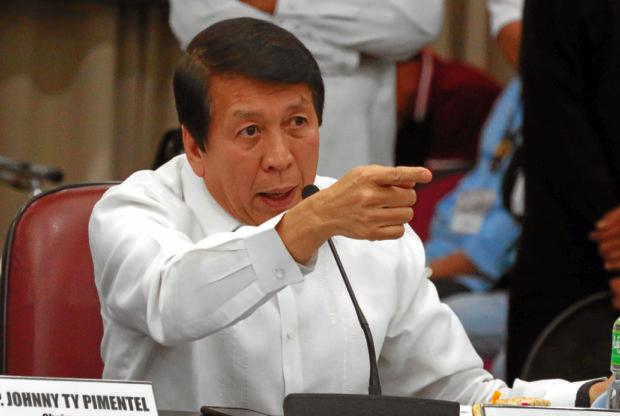
Ilocos Norte Rep. Rodolfo Fariñas (File photo by GRIG C. MONTEGRANDE / Philippine Daily Inquirer)
The reconciled version of the Bangsamoro Basic Law (BBL) – now known as the Bangsamoro Organic Law (BOL) – approved by the bicameral conference committee on Wednesday night made certain revisions in key sections.
READ: Bicam approves Bangsamoro Organic Law
According to House Majority Leader Rodolfo Fariñas, the committee not only changed the name of the law but also edited its preamble.
“We accepted mainly what they wanted, but we saw to it [that we retained the phrase] Filipino people’,” Fariñas said in ambush interview after the committee hearing. “The way they crafted it, it was like the Bangsamoro people were speaking of themselves.”
“[So we put in there ‘Filipino people,’ in recognition of their aspirations of the Bangsamoro people and the other inhabitants of Muslim Mindanao,” he added.
Fariñas said he was confident that the unified BOL version would pass all tests of constitutionality, especially with its renaming.
“Definitely, because we were very careful, precisely we had several problems along the way because we could not grant everything they want,” he said.
The common criticism about the BBL was its use of the phrase “basic law,” which in legal parlance refers to a constitution.
Critics feared that once the old BBL was adopted, it would have created a state – the Bangsamoro – inside another sovereign state – the Republic of the Philippines. This would have effectively granted secession of the Bangsamoro from the Philippines.
READ: Former SC justices differ on Bangsamoro constitutionality
Fariñas also shrugged off the possibility of critics bringing the case of the BOL to the Supreme Court, saying that it would favor the proposal since it would be the highest court which would decide on its constitutionality.
“They have the right, and we want them to bring it (BOL) para it would pass the test of constitutionality,” he said. /atm


